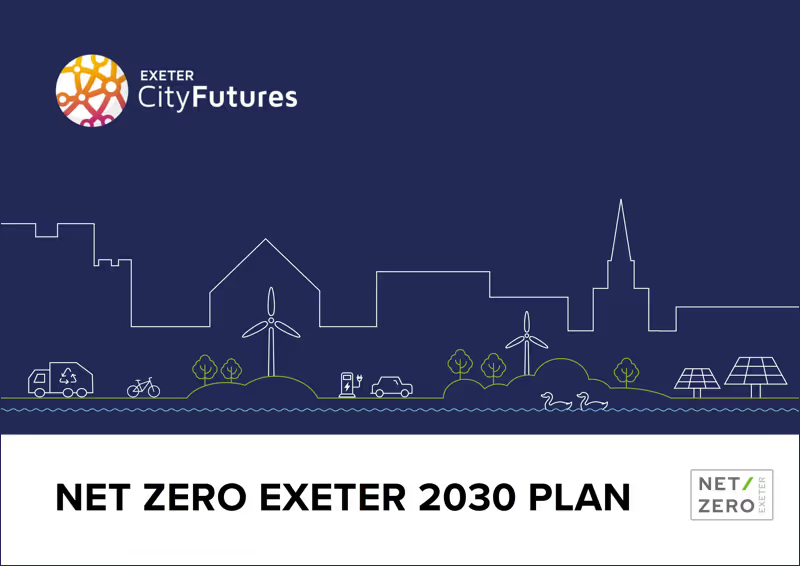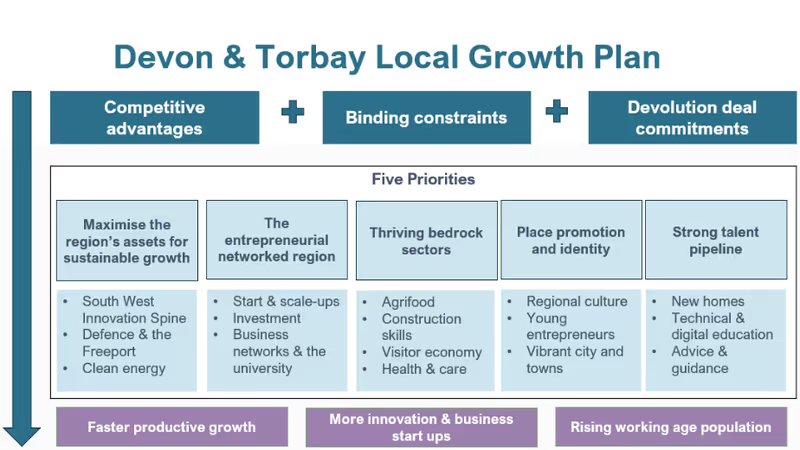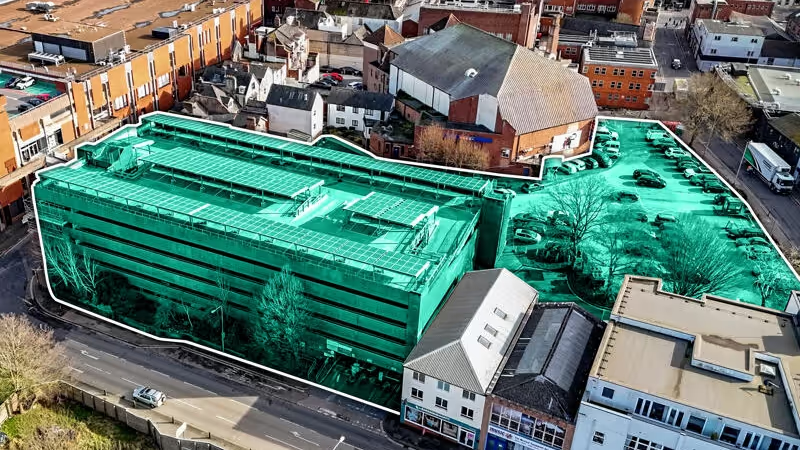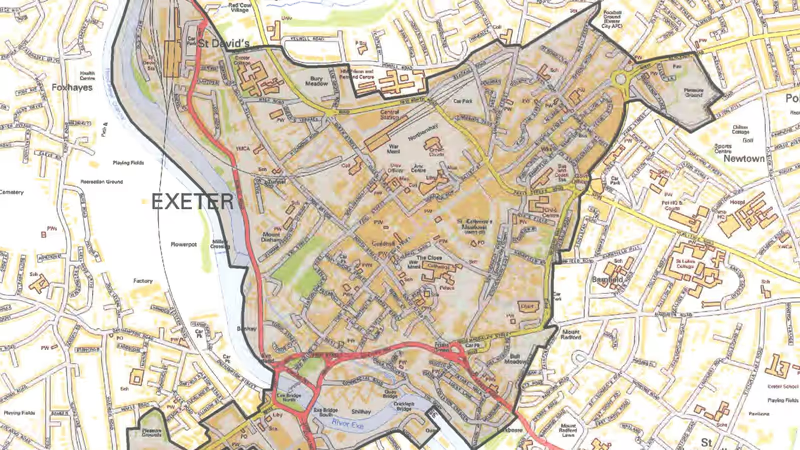Exeter City Council’s ruling Labour group manifesto for tomorrow’s local elections places the council’s current policy of “creating a net zero carbon city by 2030” at the centre of the party’s claims about its capacity to transform the city in the coming years.
Council leader Phil Bialyk has pledged that this aim would be “at the heart of everything the council does going forward”.
Exeter Labour’s election campaign has also been dominated by claims about its environmental credentials, prompting a war of words with Exeter Green Party, which has presented Labour with a series of challenges on green spaces, air pollution, transport, housing and waste management.
However, from the moment Devon County Council adopted its updated 2020-2030 Exeter Transport Strategy in November last year, the only prospective zero in Exeter’s decarbonisation plans became the probability that it would achieve them by 2030.
Data: Department for Business, Energy & Industrial Strategy .
The county council’s position is that Devon should decarbonise, not by 2030, but by 2050 “at the latest”. It says its “ambitious, but realistic” Exeter Transport Strategy “sets a direction of travel” and “aims to provide a range of travel choices which will manage congestion levels, improve air quality and move towards a low carbon transport system”. But not to arrive at that destination by the end of the decade.
Transport is already Exeter’s principal source of greenhouse gas emissions. Its contribution to the city’s carbon footprint actually increased over the ten years until 2018, the most recent year for which figures are available. The council’s “Liveable Exeter” development plan would add a further 28,800 cars to the city’s roads if it were to maintain the parking provision rate of 2.4 cars per household it approved for the development of “zero carbon homes” at Pulling Road in Pinhoe.
At the same time the city’s flagship St Sidwell’s Point leisure centre development, for which no environmental impact assessment was performed despite 150 lorry loads of concrete being used in the first phase of building alone, is expected to drive half a million city centre visits each year, many of which seem likely to be encouraged by the free car parking that is proposed for its users.
And Devon County Council’s position on decarbonisation remains unchanged despite a recent public consultation on the first draft of the Devon Carbon Plan finding that a majority want net zero by 2030 and only 13% support a 2050 target date.
The Devon County Council-led Devon Climate Emergency Response Group (DCERG), which is responsible for the Devon Carbon Plan, says it is intended to “consider the earliest, credible date which should be set for net-zero emissions” which it presents as “2050 at the latest, with an interim target of 50% reduction by 2030”.
A report on the consultation response findings to the county council’s Climate Change Standing Overview Group said 2030 was a “popular” target year, but questioned whether it was “realistic”. At subsequent DCERG meetings an unspecified “compromise position” on a decarbonisation date that “could be palatable to all of the organisations in the Devon Climate Emergency partnership” was suggested.
A citizens’ assembly due to take place in July will deliberate key issues presented in the first draft of the Devon Carbon Plan. It will nevertheless not be invited to discuss the date for achieving decarbonisation in Devon despite some consultation respondents saying they thought it should.
Data: Devon Climate Emergency Response Group.
Following these findings, a report by Exeter City Council’s chief executive to the Audit and Governance committee said there was a high risk that the council will be unable to “deliver carbon neutral aspirations for Exeter by 2030”.
The report said that Devon County Council’s draft net zero plan was “explicit that net zero cannot be achieved by 2030” and instead aimed for “a 50% reduction by 2030 and net zero by 2050” which it said was a “fair reflection of the technical and financial challenges ahead”.
It said: “Members may wish to reflect upon this in responding to this particular risk”, adding that a “50% reduction in greenhouse gasses would be an incredible achievement”.
At the meeting Liberal Democrat councillor Michael Mitchell asked whether Exeter City Council would carry out “an urgent review” of its carbon neutral aspirations.
Dave Hodgson, the city council’s finance director, replied: “The aspiration of the council is to deliver carbon neutral by 2030 but it has always been made clear that, from a financial point of view, we required the support of partners both local, regional and, indeed, national in order to deliver this.”
He said: “That’s a question for the Executive. Perhaps that’s a question that may be appropriate at [a full meeting of the] council because ultimately, obviously, it will be a councillors’ decision.”
The month before the Audit and Governance committee meeting, the council gave advance notice of a report on its “Net Zero Proposals” to be presented at an Executive meeting in April. The report, which was to be heard in private, has since disappeared from the Executive forward plan.
The review which accompanied the Audit and Governance committee report identified several potential causes for the delivery failure risk. These included the “political environment”, the “economics of carbon reduction” and “behavioural challenges” as well as “misalignment” with the Devon Carbon Plan.
They also included the council’s “technical capability to deliver”, “lack of control over all stakeholders” and “failure to engage with residents and businesses of Exeter to ensure solutions proposed meet real need”.
The review identified three “mitigations and controls to be put into place” which included ensuring “clear alignment with D[C]ERG and national climate action plans”, continued investment in “supporting Exeter City Futures” and “national communication positioning Exeter as a leading sustainable city”.
We asked Exeter City Council several questions about the review. The council said: “We are a partner with Devon and there is clear alignment”. But when we asked in what ways the city’s carbon reduction aspirations can be clearly aligned with D[C]ERG and national climate action plans without adopting the same target dates, it responded by saying our question was not applicable.
We asked about the report on the council’s “Net Zero Proposals” which was scheduled for the Executive’s April meeting but which then disappeared from the Executive forward plan. The council said: “Net Zero 2030 will be discussed at Executive at a date in the future, although it will not be part of the agenda for the April meeting”.
A spokesman for the council added: “The council’s 2021-22 budget has been approved. Net Zero 2030 is the council’s priority and the council is working to make this happen within the resources that have been approved by the council’s budget.
“This inevitably requires the city council to work with a wide variety of partners in pursuit of the goal. The council’s recovery plan identified the need for a sustainable fund to support our ambitions. The council will continue to make the case for funding to support our ambitions.”
When the DCERG formed in May 2019 it invited public, private and third sector organisations across the county to endorse a Devon Climate Declaration framing their commitment to taking action in response to the climate emergency.
All of Devon’s seven other second-tier district and borough councils have so far taken formal decisions to support the declaration as full signatories.
Exeter City Council has not. It has however adopted a plan produced by Exeter City Futures which ignores over a million tonnes of carbon emissions generated by the city and massively underestimates the challenges it faces.
Meanwhile, despite Parliament passing legislation in June 2019 committing the UK to reaching net zero by 2050, national climate action plans have been criticised for lack of ambition in key areas and are being undermined by recent decisions including cutting domestic air passenger duty and foreign aid, freezing vehicle fuel duty for the eleventh year in a row and axing the flagship green homes grant scheme.
The House of Commons Public Accounts Committee says the government does not have a “co-ordinated plan”, the National Audit Office says the UK is currently not on track to meet its targets and the Institute for Government says it has “not yet confronted the scale of the task”.
Whether Exeter City Council is about to do so, and whether it will follow national and regional policy leads as a result, will hopefully become clear in the coming months.









